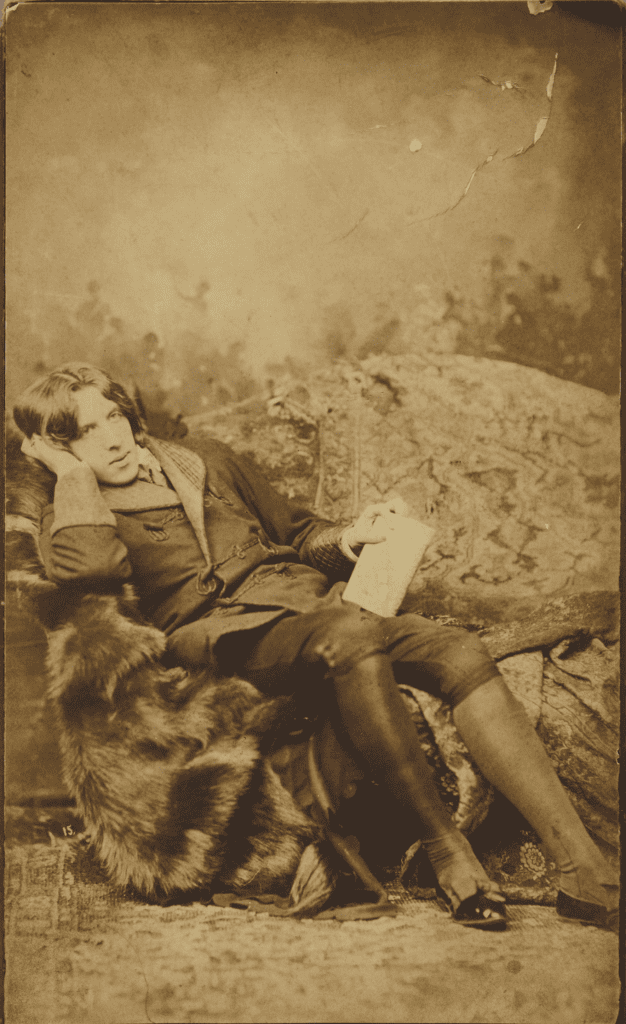
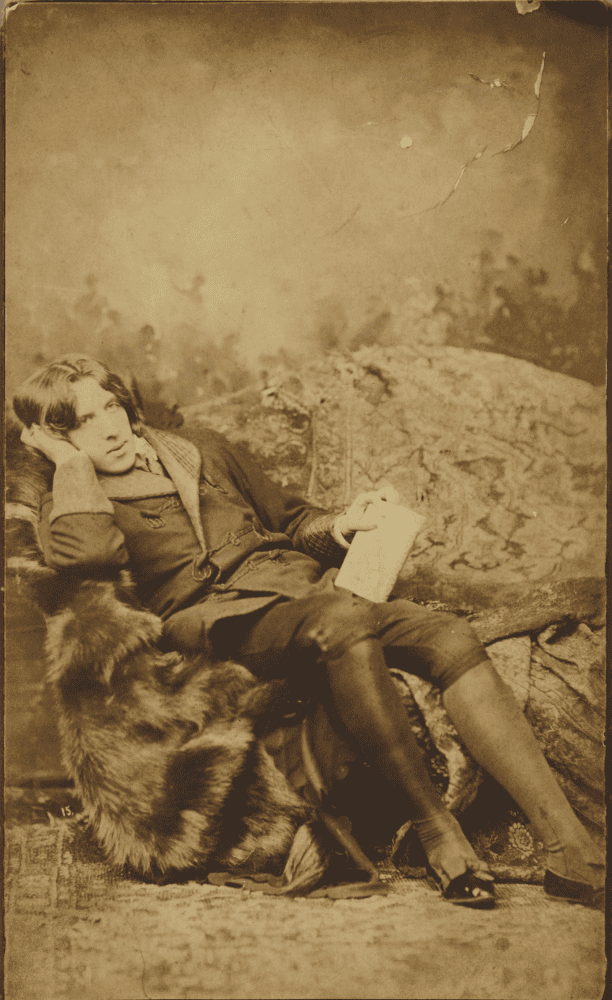



Portrait of Wilde by Napoleon Sarony (1882)
One of the definitive images of the young Wilde, photographed in full Aesthetic garb and publicising his American tour. Napoleon Sarony (1821–1896) was a New York studio photographer, who declared Wilde “a picturesque subject indeed”.
Magdalen College Archives, MS 301 (v)
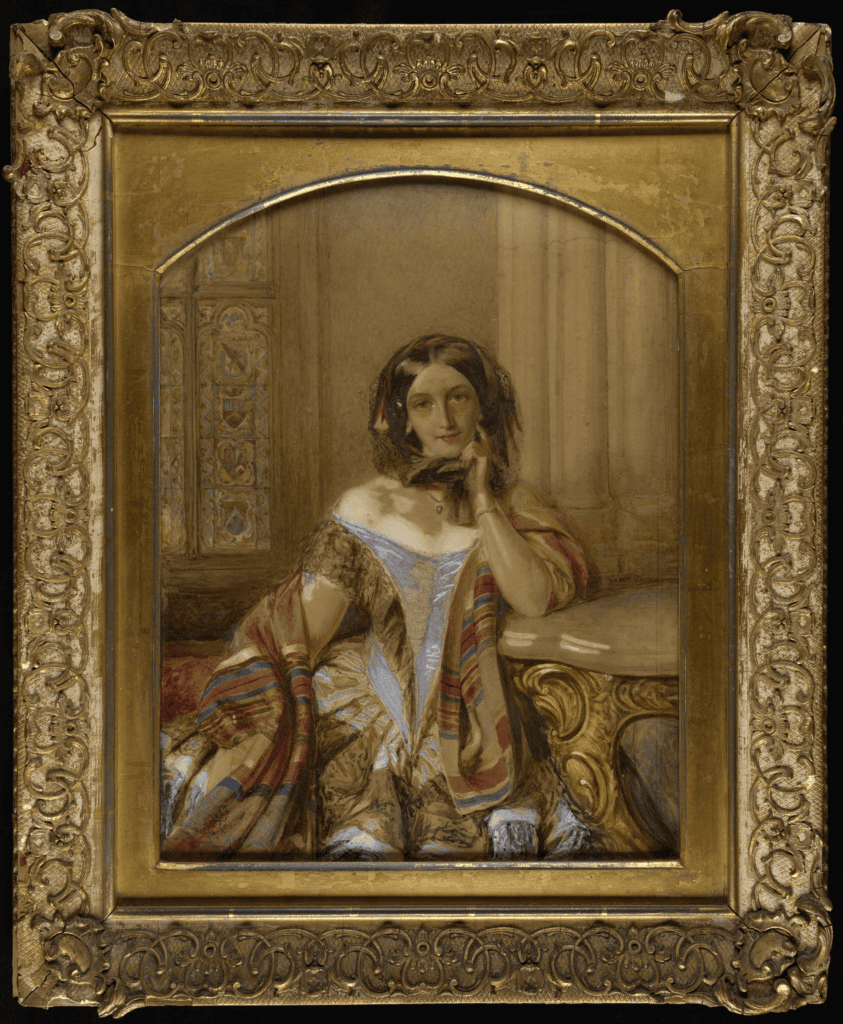

Lady Jane Wilde (c. 1845, artist unknown)
Jane Frances Agnes, Lady Wilde (née Elgin, 1821–96) was an Irish writer, suffragist, translator, and the mother of Oscar, Willie, and Isola Wilde. Before marriage, she gained fame writing for the revolutionary Young Ireland movement; as Lady Wilde, she hosted a famous Saturday salon at the Wildes’ Dublin home. She supported Oscar throughout his downfall and died during his prison sentence.
From the collection of Francis Spiteri Paris
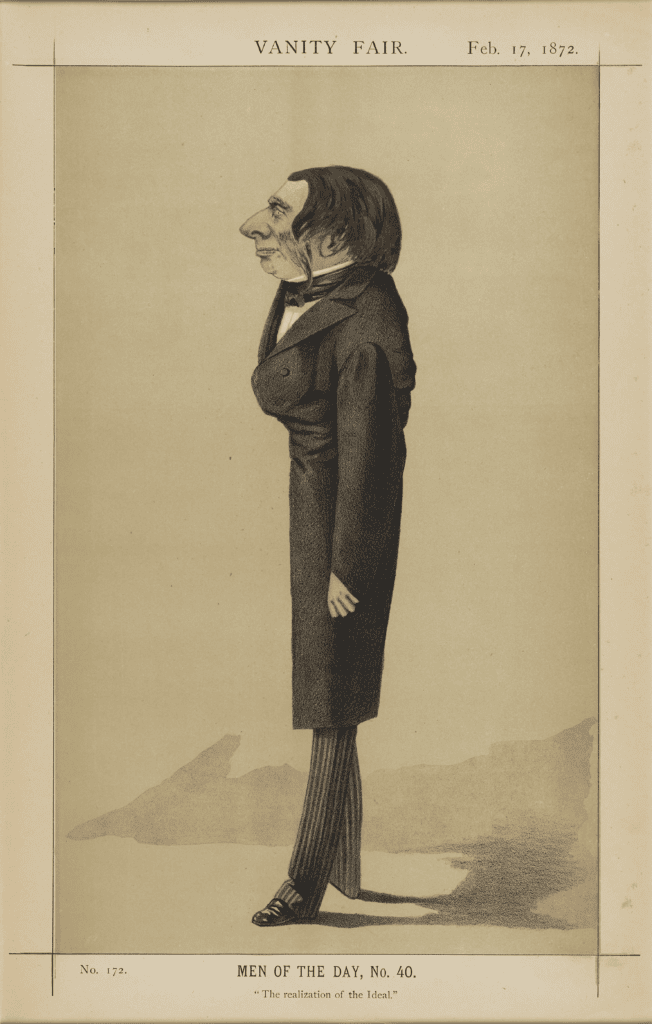

John Ruskin (1872)
Vanity Fair Cartoon by Adriano Cecioni
Ruskin (1819–1900) was an art critic and the first Oxford Slade Professor of Art. While at Magdalen, Wilde attended his lectures and (very briefly) assisted Ruskin’s road-building project at Hinksey. Ruskin strongly influenced Wilde’s journalism, aesthetic criticism, and fairy tales. Wilde and his wife Constance asked Ruskin to become their son Vyvyan’s godfather.
From the collection of Francis Spiteri Paris
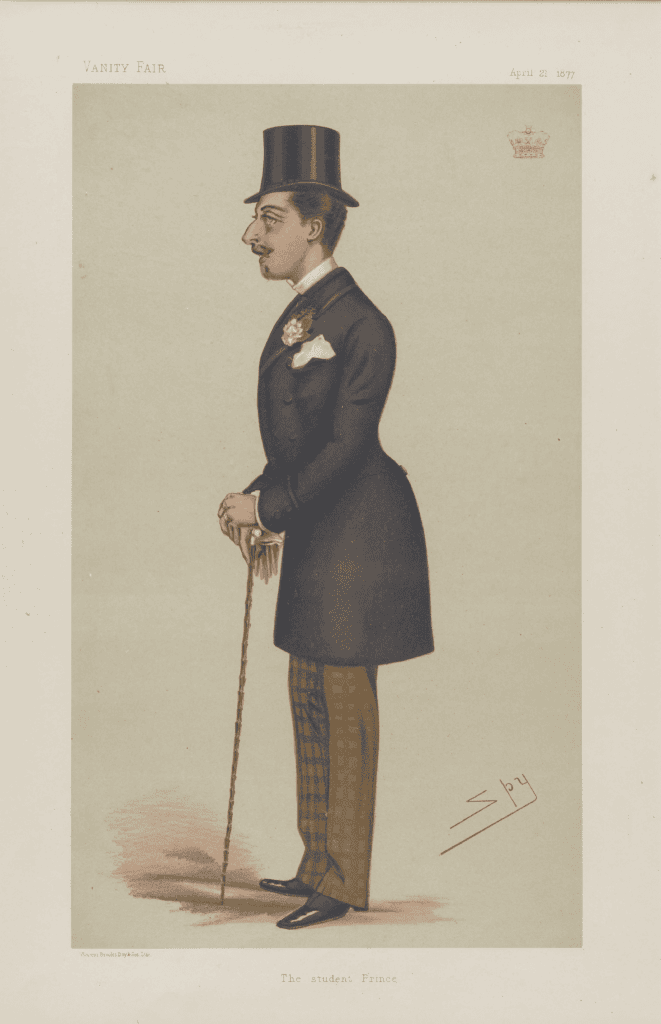

Prince Leopold (1877)
Vanity Fair Cartoon by “Spy” (Leslie Ward)
Prince Leopold, 1st Duke of Albany (1853–84) was Queen Victoria’s youngest son. From 1872–6, he studied at Christ Church, Oxford, but regularly attended Magdalen Chapel. Wilde and Leopold had close mutual friends and were members of the same Masonic Lodge. Haemophilia shortened Leopold’s life.
From the collection of Francis Spiteri Paris
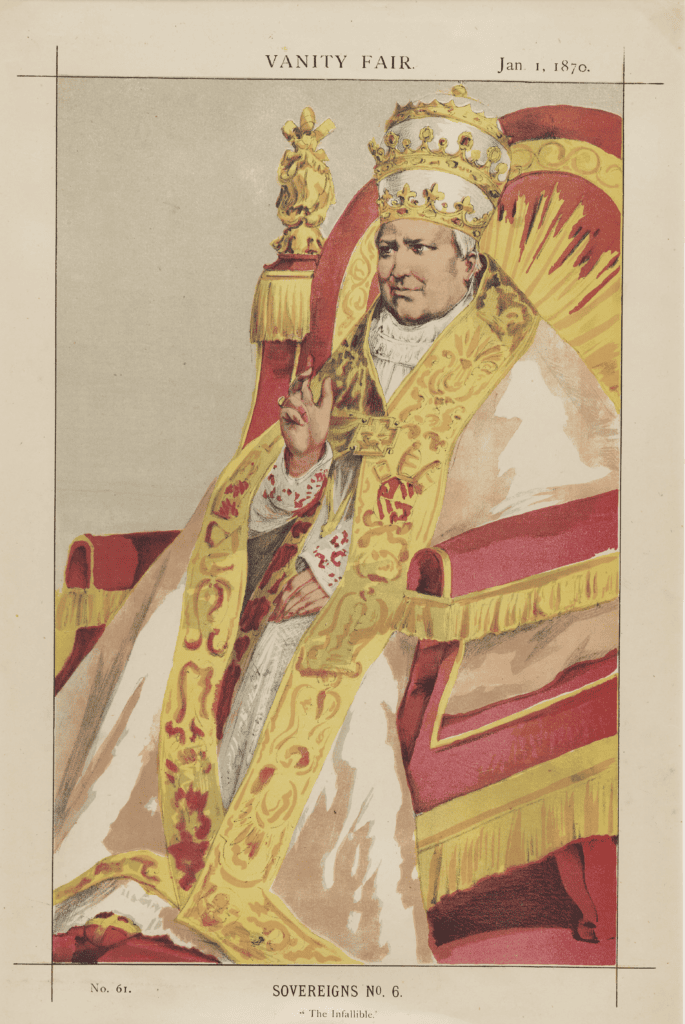

Pope Pius IX (1870)
Vanity Fair Cartoon by James Tissot
Pope Pius IX, Giovanni Maria Mastai Ferretti (1792–1878) was Pope from 1846 to 1878. Wilde’s Magdalen friend, David Hunter-Blair, arranged for Wilde to have an audience with the Pope during Wilde’s 1877 visit to Rome. Wilde converted to Catholicism on his deathbed in 1900.
From the collection of Francis Spiteri Paris
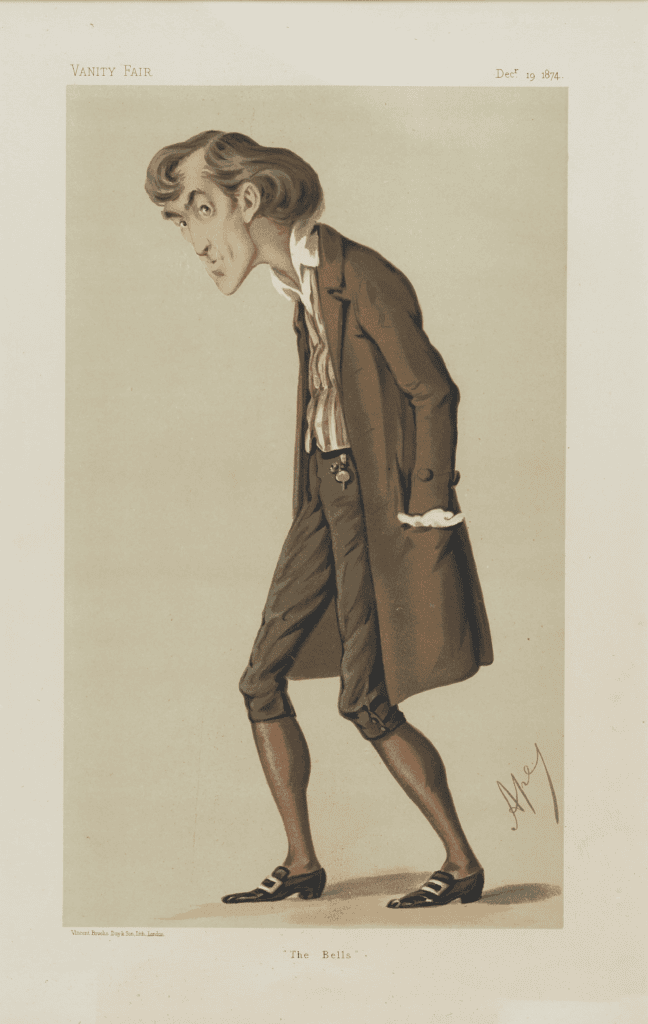

Sir Henry Irving (1874)
Vanity Fair Cartoon by “Ape” (Carlo Pellegrini)
Irving (1838–1905) was the leading actor-manager of the Victorian stage. As a student, Wilde travelled to London to see Irving play Hamlet, and later enthusiastically reviewed his productions, dedicating poetry to both Irving and his leading lady, Ellen Terry (1847–1928).
From the collection of Francis Spiteri Paris
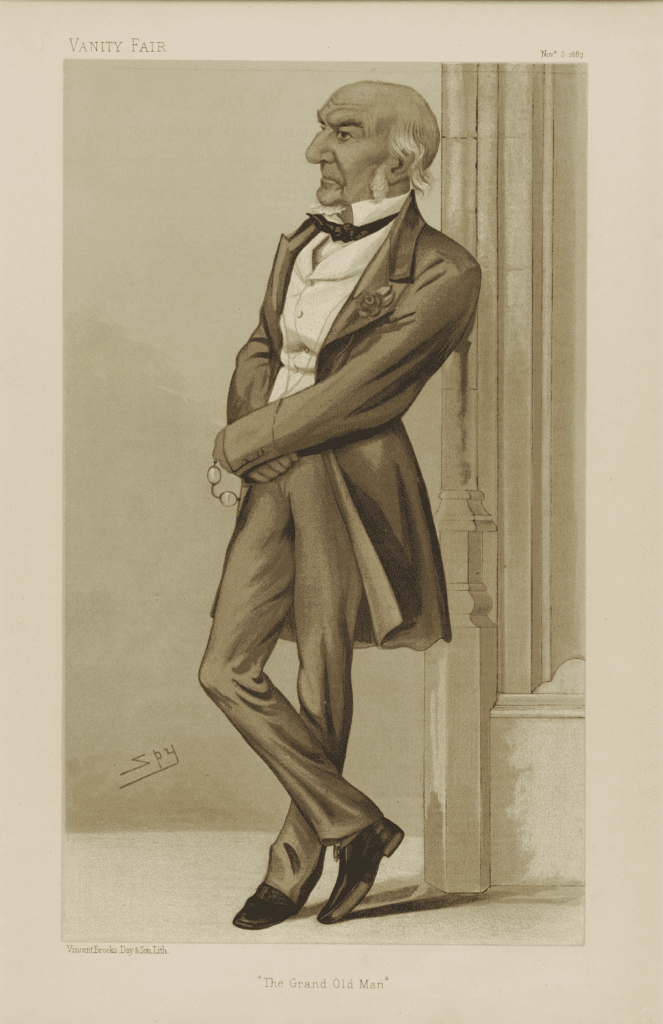

W.E. Gladstone (1882)
Vanity Fair Cartoon by “Spy” (Leslie Ward)
Liberal Prime Minister of the UK 1868–1874; 1880–5; 1886; 1892–4. While at Magdalen, Wilde sent Gladstone a political sonnet, trying to elicit the great man’s help in achieving publication. Wilde later sent Gladstone copies of Poems (1881) and The Happy Prince (1888).
From the collection of Francis Spiteri Paris
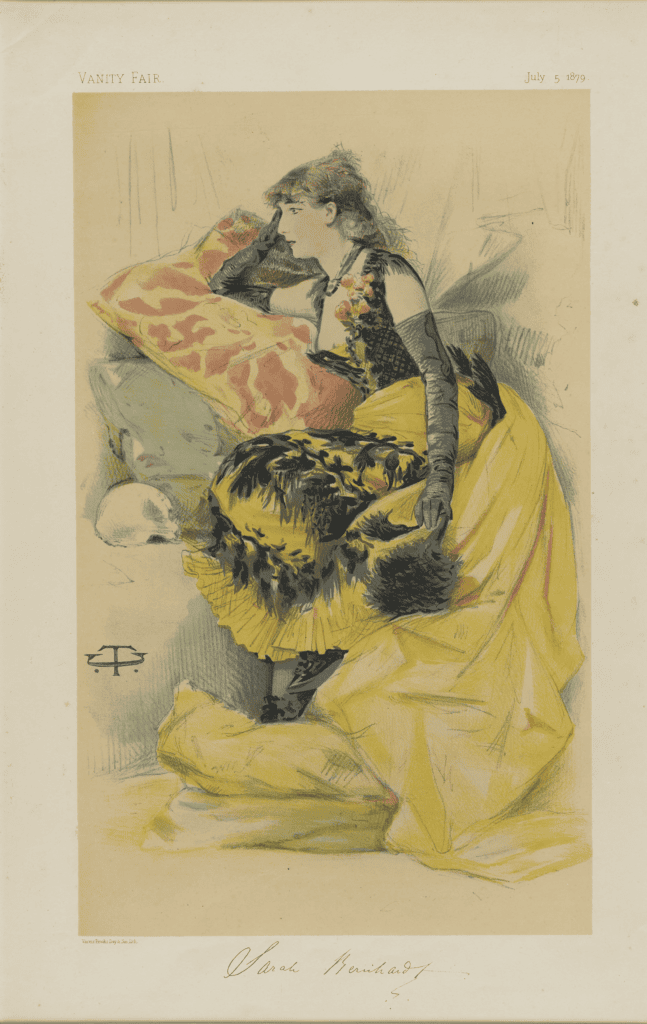

Sarah Bernhardt (1879)
Vanity Fair Cartoon by Théobald Chartran
After Wilde left Magdalen for London, he became close to several theatrical luminaries, including leading French actress Sarah Bernhardt (1847–1923). In 1892, Bernhardt agreed to play the titular role in Wilde’s Salomé, but the production was denied a licence.
From the collection of Francis Spiteri Paris
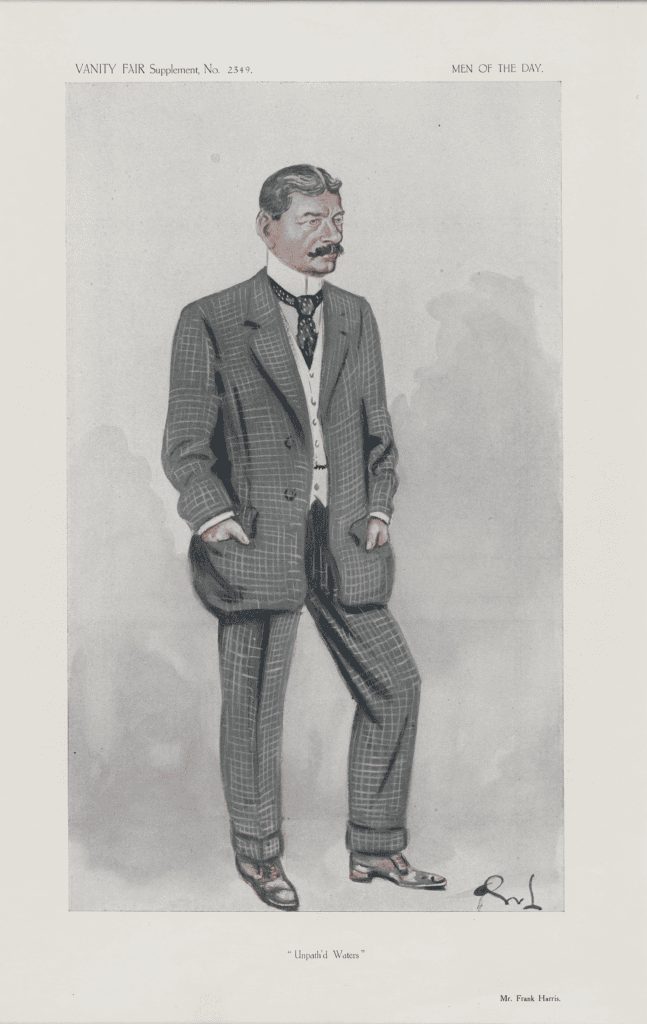

Frank Harris (1913)
Vanity Fair Cartoon by “Owl”
Irish-American author Frank Harris (1855–1931) was Wilde’s friend, defending him from controversies over The Critic as Artist and Lady Windermere’s Fan. He tried to persuade Wilde to leave for France rather than face his trial for gross indecency, and petitioned for Wilde to have better treatment in prison. After his release, Wilde sold Harris a scenario for the play Mr and Mrs Daventry for a much-needed £100.
From the collection of Francis Spiteri Paris
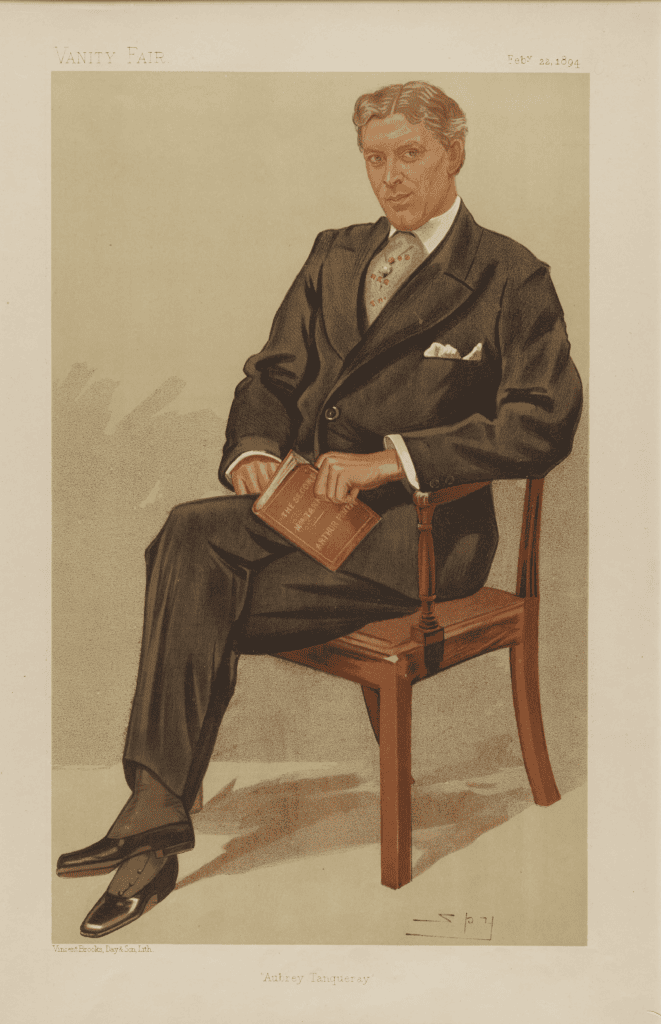

George Alexander (1894)
Vanity Fair cartoon by “Spy” (Leslie Ward)
Alexander (1858–1918) was an actor-manager and lessee of the St James’s Theatre, where he produced Lady Windermere’s Fan (1892) and The Importance of Being Earnest (1895). He played Lord Windermere and Jack Worthing respectively. After Wilde’s arrest, Alexander refused to stand bail for him. They reunited after Wilde’s release, when he regularly sent Wilde money. Alexander bequeathed copyrights in his work to Vyvyan Holland.
From the collection of Francis Spiteri Paris
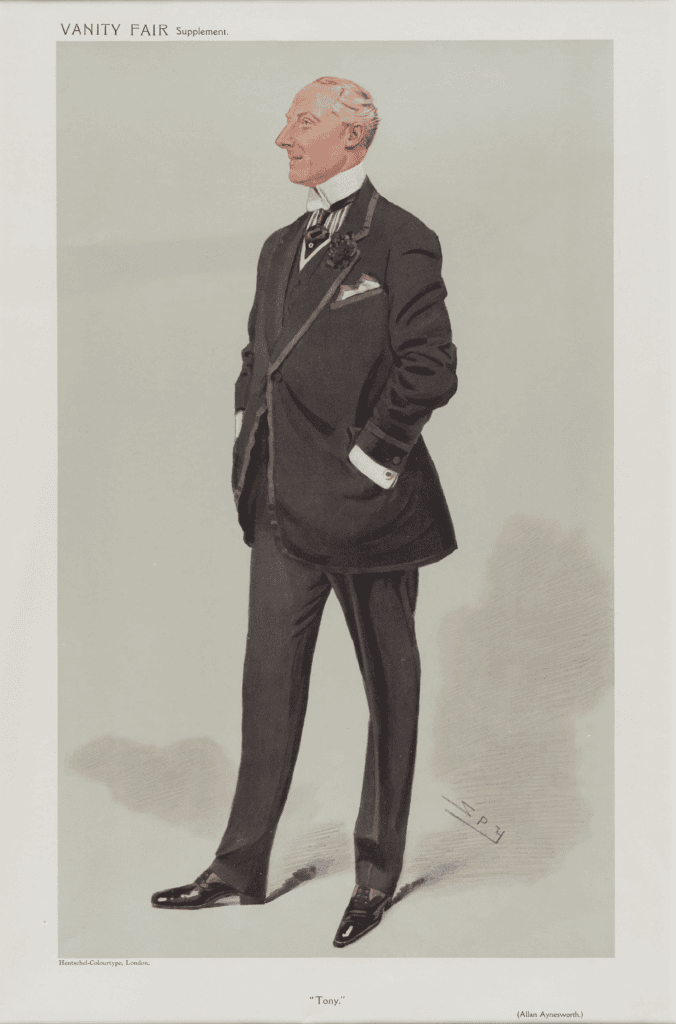

Allan Aynesworth (1908)
Vanity Fair Cartoon by “Spy” (Leslie Ward)
Actor Allan Aynesworth (1864–1959) originated the role of Algernon Moncrieff in The Importance of Being Earnest (1895), opposite George Alexander as Jack Worthing. Aynesworth, from a military and medical family, had trained at the Comédie Française in Paris. In 1909, Alexander and Aynesworth reprised their roles in a highly successful revival of Earnest, once again at the St James’s Theatre.
From the collection of Francis Spiteri Paris
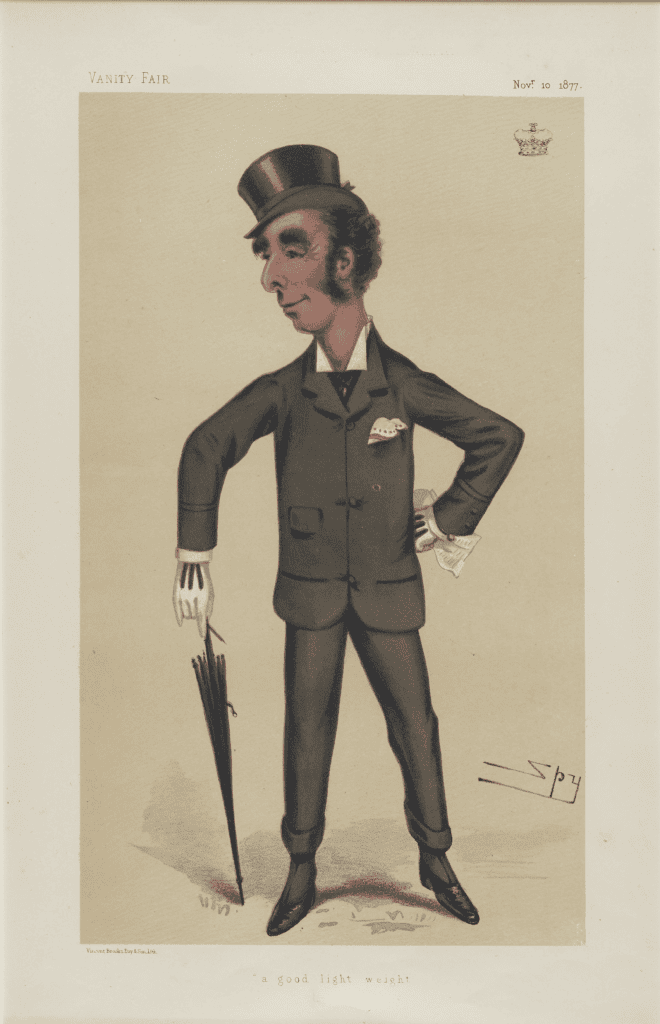

John Sholto Douglas, 9th Marquess of Queensberry (1877)
Vanity Fair Cartoon by “Spy” (Leslie Ward)
Queensberry (1844–1900) was the father of Wilde’s lover, Lord Alfred “Bosie” Douglas (1870–1945). The relationship appalled Queensberry. On 18 February 1895 he left a card at Wilde’s club, the Albemarle, reading “For Oscar Wilde, posing Somdomite” [sic]. Wilde immediately sued Queensberry for libel. The trial collapsed and Queensberry was acquitted. Wilde was then arrested for gross indecency, and eventually sentenced to two years in prison.
From the collection of Francis Spiteri Paris
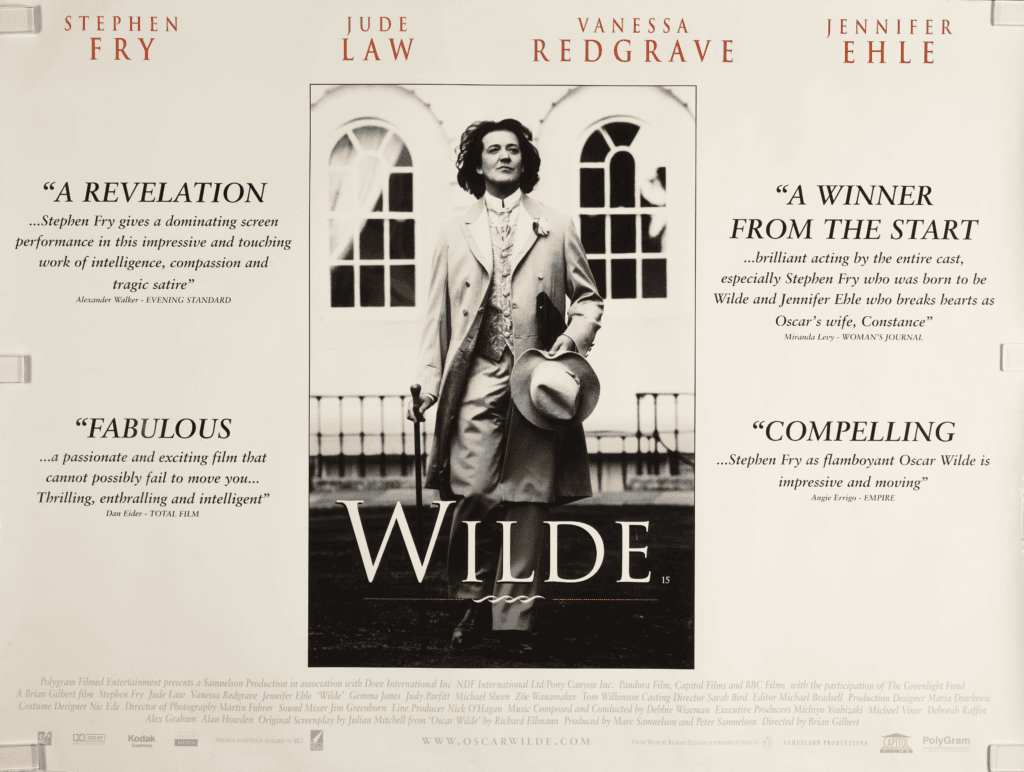

Publicity Poster for Wilde (1997)
Starring Stephen Fry in the title role, Wilde is, to date, the most successful biopic of the author. Directed by Brian Gilbert, with a screenplay by Julian Mitchell, Wilde includes scenes filmed at Magdalen.
From the collection of Michael Seeney
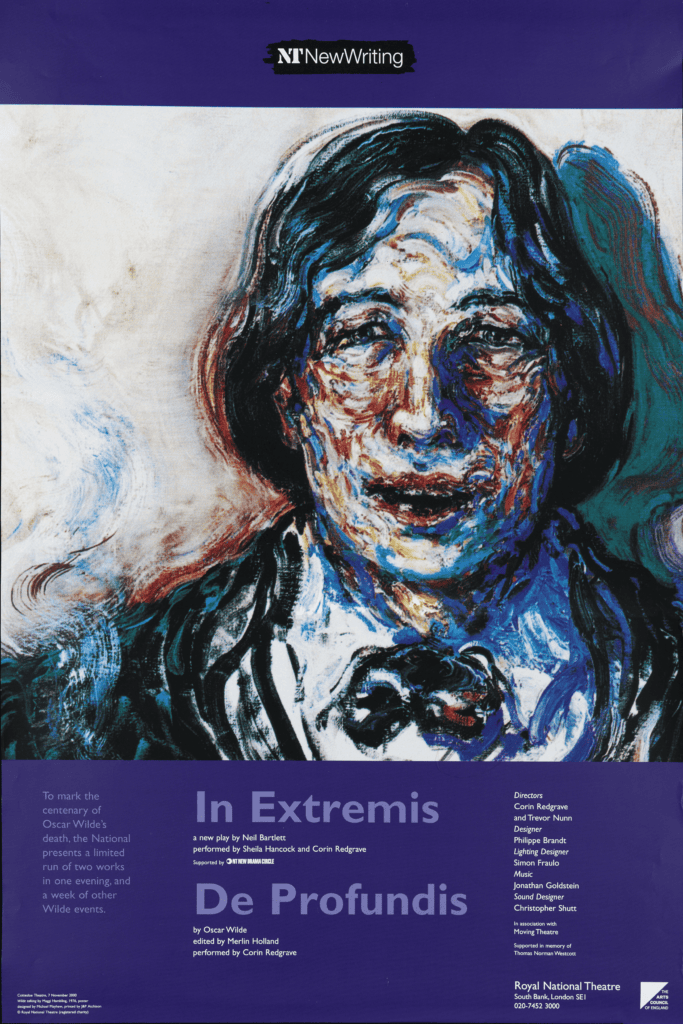

Wilde’s Centenary at the National Theatre (2000)
To mark the centenary of Wilde’s death, the National Theatre commissioned two pieces of theatre: one by Neil Bartlett, In Extremis. The other was De Profundis, edited by Wilde’s grandson, Merlin Holland. The portrait of Wilde is by Maggi Hambling.
From the collection of Michael Seeney
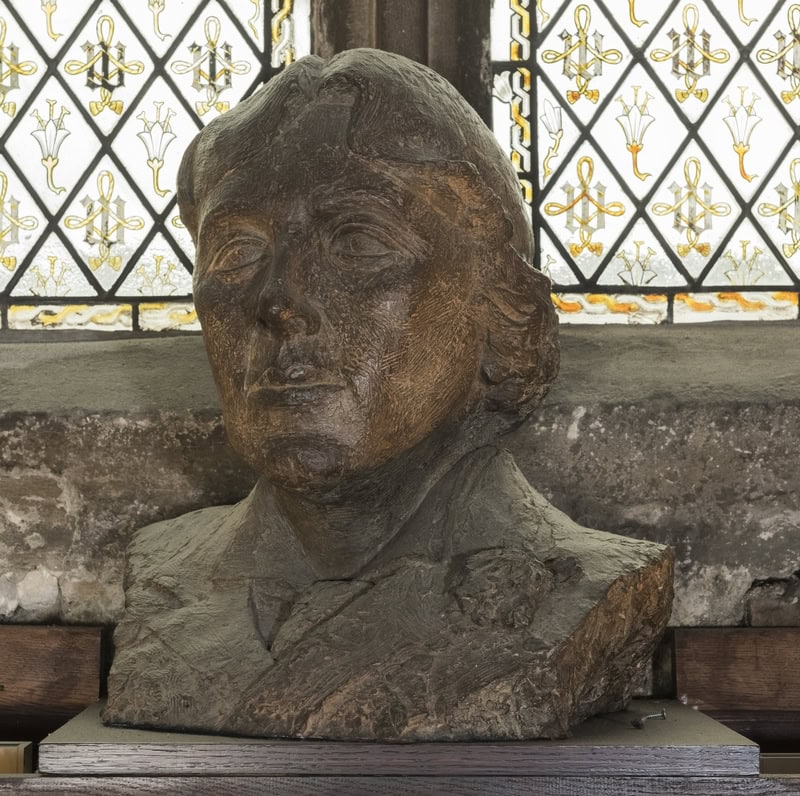

Bronze bust of Oscar Wilde
This bust of Oscar Wilde was made by Melanie Le Brocquy (1919–2008). It is displayed in Magdalen’s dining hall.
Magdalen College Chattels.